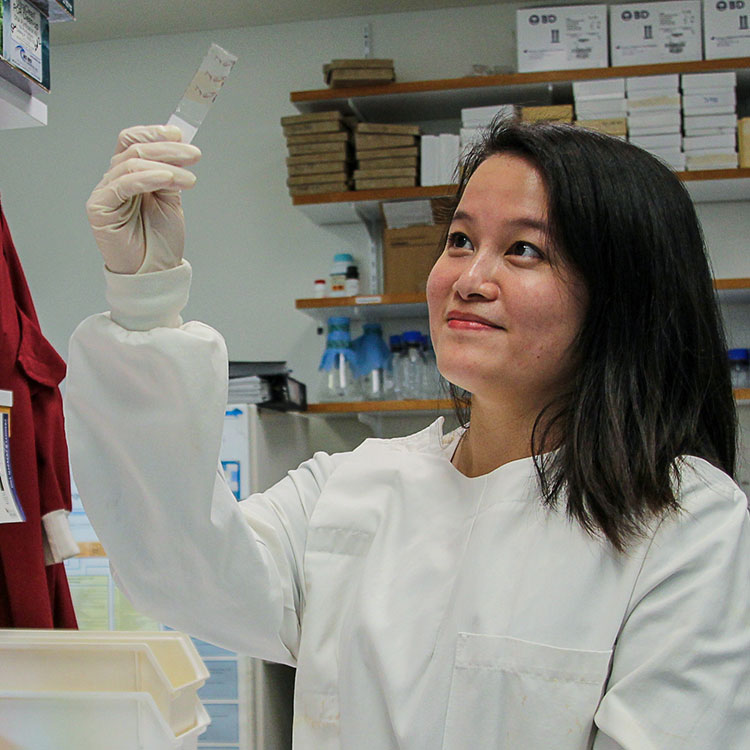Search
Research
The diagnostic odyssey for children living with a rare disease – Caregiver and patient perspectives: A narrative review with recommendationsChildren living with a rare disease often endure a lengthy journey to diagnosis, commonly referred to as a diagnostic odyssey. This journey significantly impacts their physical, mental and financial wellbeing, in addition to that of their families. The diagnostic odyssey is often characterised by anxiety and stress surrounding the uncertainty of the future. This is experienced by the patient as well as by the family.
Research
Filling Gaps in Adolescent Health Measurement: Taking Stock of Progress and Priorities AheadCitation: Keogh SC, Guthold R, Newby H, …….. Azzopardi P, Fagan L, et al. Filling Gaps in Adolescent Health Measurement: Taking Stock of Progress and
Research
FeBRILe3: Risk-Stratification and Diagnosis of Serious Bacterial Infections in Febrile Infants Less Than 3 Months OldEvidence-based recommendations exist for early discharge (before 48 h) of young infants with fever without source (FWS) at low risk of serious bacterial infections (SBIs). However, concerns regarding the applicability of international data to local contexts may hinder implementation. We aimed to describe the local epidemiology of FWS and evaluate a newly implemented risk-stratification guideline to support practice change.
Research
Living closer to the beach is associated with better socioemotional development in young boysNatural outdoor environments such as green and blue spaces have increasingly been seen as key health and wellbeing determinants for adults. However, it is unclear if these effects are seen in young children. We examined the associations between access to natural green and blue space and young children's socioemotional development.
Research
Short-Term Diabetic Retinopathy Status in People with Type 1 Diabetes Commencing Automated Insulin DeliveryRapid improvements in glucose control may lead to early worsening of diabetic retinopathy (EWDR). There is a need to demonstrate safety in people commencing automated insulin delivery (AID) due to the known efficacy in rapid glycemic improvement. We aimed to investigate short-term DR outcomes in people (aged ≥13 years) with type 1 diabetes after initiation of AID (use ≥6 months).
Research
Longitudinal Study of Indigenous Children: Adolescent never smoking and associations with individual, social, and environmental factorsFuelled by the tobacco industry, commercial tobacco use is a major cause of preventable morbidity and mortality among Aboriginal and Torres Strait Islander peoples. Preventing adolescent smoking initiation is critical to reducing uptake. Understanding individual, social, and environmental factors that are protective against smoking can inform prevention strategies.
Research
Immunogenicity, Reactogenicity, and Safety of a Pentavalent Meningococcal ABCWY Vaccine in Adolescents and Young Adults who had Previously Received a Meningococcal ACWY VaccineA MenABCWY vaccine containing 4CMenB and MenACWY-CRM vaccine components has been developed to protect against the 5 meningococcal serogroups that cause most invasive disease cases.
Research
Antibiotics or watchful waiting for acute otitis media in urban Aboriginal and Torres Strait Islander children?Chris Valerie Brennan-Jones Swift PhD Head, Ear and Hearing Health Aboriginal Co-Director, Djaalinj Waakinj Centre for Ear and Hearing Health;

News & Events
Hear from Dr Asha Bowen at our free Girls in Science EventSecondary students have the opportunity to hear from Associate Professor Asha Bowen, a 2018 L’Oreal-UNESCO Women in Science Fellow, in a free online event this National Science Week.

News & Events
State Government boost for The Kids researchThe Kids Research Institute Australia researchers have been awarded five of eight State Government awards designed to help cover the hidden costs of conducting research.
